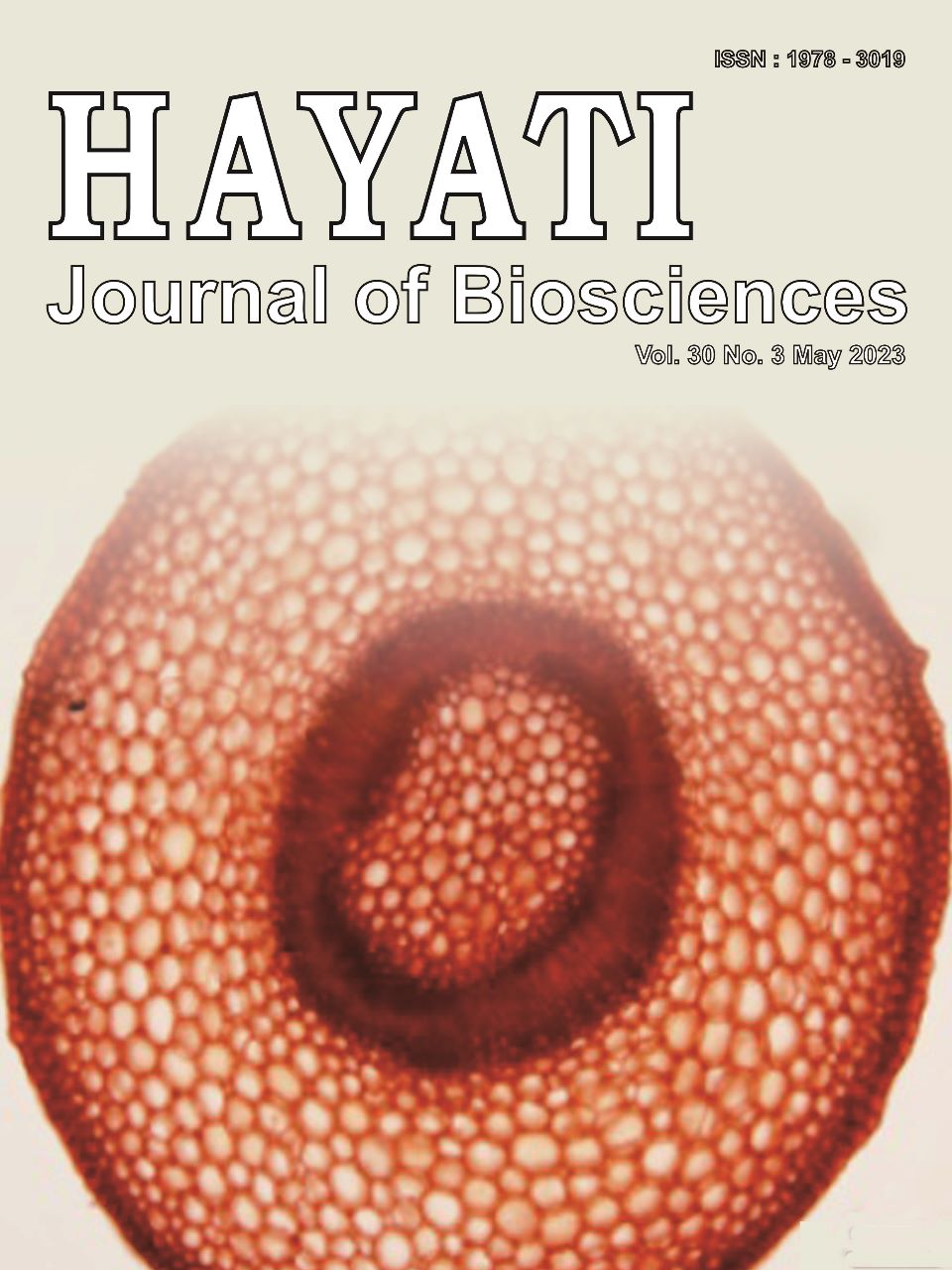Early Menopause: Reproductive Adaptation of Javanese Women in Oransbari Distric West Papua
Abstract
Menopause is the permanent cessation of menstruation due to loss of ovarian follicular activity. Assessment of the age of menopause is particularly important because previous studies have shown a high risk of osteoporosis, hypertension, stroke, and coronary heart disease. This study aims to determine the risk factors for early menopause in Javanese women in Oransbari District, West Papua Province. The cross-sectional sampling method was carried out on women aged 51.73 years with an interval of 40.07-78.58 years. Age at menopause was calculated using the Probit Generalized Linear Model (GLM) analysis. We used a binary logit regression (BLR) model to estimate risk factors for early menopause. BLR analysis was fitted to estimate the odds ratio (OR) and 95% confidence interval (CI). Age at menopause is divided into two categories, normal (≥45 years) and early (<45 years). Our results show that the average age of menopause is 43.1 years, or the early menopause category, with an age range of 39.61 to 55.28 years. The results of the partial parameter significance test at the 10% significance level showed that no formal education (OR: 2.348; CI 1.4213.917) had the most significant risk factor for experiencing early menopause, followed by parity (OR: 0.623; CI: 0.377-1.023), contraception (OR: 0.118; CI: 0.038-0.296), and the lowest risk was the age at first delivery (OR: 0.389; CI: 0.207-0.716). The biocultural conditions experienced early in life in Oransbari shape the character of a younger reproductive age as an adaptive response to maximize fitness.
Downloads
Copyright (c) 2023 Elda Irma Jeanne Joice Kawulur, Eka Dewi Kusumawati, Eneng Nunuz Rohmatullayaly, Indah Ratih Anggriyani

This work is licensed under a Creative Commons Attribution-NonCommercial 4.0 International License.
HAYATI J Biosci is an open access journal and the article's license is CC-BY-NC. This license lets others distribute, remix, tweak, and build upon author's work, as long as they credit the original creation. Authors retain copyright and grant the journal/publisher non exclusive publishing rights with the work simultaneously licensed under a https://creativecommons.org/


















.png) IPB University
IPB University Department of Biology
Department of Biology The Indonesian Biological Society
The Indonesian Biological Society 

